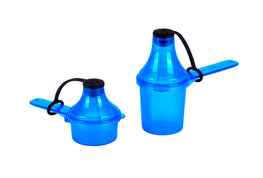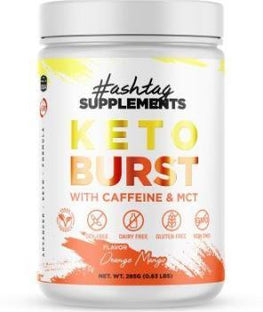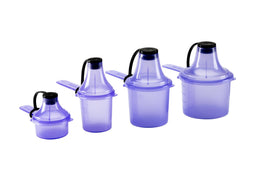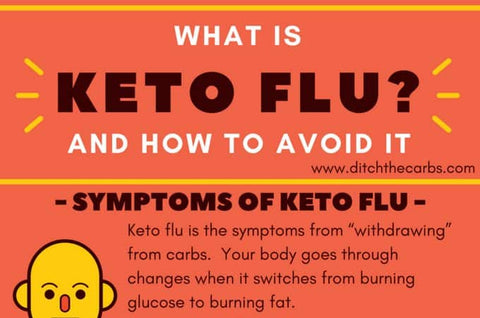7 Things You Didn’t Know About Keto

The ketogenic diet has become the hottest health and fitness trend for those wanting to burn fat and boost their metabolism.
After all, the search phrase “keto diet” showed the highest growth in 2017 (300 percent!), according to the Google Trends tool. It’s also being touted by celebrities like Kim Kardashian and Halle Berry as a way to lose fat, boost energy and improve mental clarity without being hungry. Meanwhile, social media is abuzz with before-and-after keto photos, the latest ketone drinks and Pinterest boards full of keto-friendly recipes (antipasto skewers, anyone?)
But before you reach for the grass-fed butter, here are seven things to know about this diet du jour.
Watch the protein shakes. A keto diet is a low-carb, moderate protein and high-fat diet designed to put your body into a state called ketosis. Ketosis occurs when your blood sugar is low but there’s too little stored glucose in your body to burn as fuel, so your liver burns stored body fat to produce ketones. These ketones are then used as energy instead of glucose from carbohydrates.
Some protein shakes contain too many carbs – especially whey protein ones used by bodybuilders for massive gains. Other protein shakes don’t contain enough fat – and you’ll need to add the fat you need to burn on a ketogenic diet.
The key here is to read your labels and measure accurately. This is where the cubic centimeter/milliliter measurements on The Scoopie portable scoop-and-funnel combo are helpful.
There are alcoholic drinks that won’t ruin your diet. Of course, if you’re on the ketogenic diet for pure health reasons, alcohol should be an occasional treat at best. However, if you like to have a drink or find yourself in a social drinking situation, it’s safest to stick with pure spirits like whiskey, brandy, cognac, vodka and tequila. They all contain no carbs. A dry martini or gin or vodka with soda water and a twist of lemon of lime also won’t throw you out of ketosis.
Ketosis can reduce inflammation and kill bacterial infections. According to National Institute of Health reports, ketosis fights inflammation by lowering the sugars that are directly correlated with inflammation in diseases such as rheumatoid arthritis, fibromyalgia and multiple sclerosis. The NIH also says it’s linked with the suppression of bacterial infections without the use of antibiotics.
Both findings are why Al Katawazi, 38, of Gilbert, Arizona turned to the diet to cope with the symptoms of Lyme Disease. “I noticed the elimination of pain from systemwide inflammation I deal with on a semi-regular basis,” he says. Ketogenic diets also increase levels of glutathione, which helps detoxify your body (people with autoimmune disease are typically low in glutathione).
You can get the “keto flu!” Also known as the “carb flu,” the keto flu is a natural reaction from the body when it switches to burning fat instead of sugar (glucose). For a few days to a week, some people on the ketogenic diet experience flu-like symptoms such as nausea, drowsiness and body aches. Some even liken it to withdrawal from an addictive substance. To help reduce or eliminate these symptoms, take a daily electrolyte supplement specifically designed for ketogenic diets (many electrolyte sports drinks like Gatorade can contain tons of sugar, which will throw you out of ketosis). Many of these supplements come in powdered form, have to be added to water, and need to be taken after a workout, so again, a portable scoop and funnel like The Scoopie can be your friend when it comes to gym prep. You can also make your own keto-friendly electrolyte drink (sometimes called “KetoRade”) with a cup of water, a teaspoon of mineral sea salt and freshly squeezed lemon or lime juice (there are tons of recipes out there – just pick your favorite!)
Keto sharpens mental clarity and focus. That’s because it produces more fatty acids, which are good for your brain. Ketones – the acids that build up in your body while in ketosis – have also been shown to suppress brain glucose consumption, which boosts mental sharpness. “I’ve personally noticed significant boosts in cognitive function on the keto diet,” says Katwazi.
The keto diet can be difficult to sustain. At least that was Katawazi’s experience. “This is a crazy hard diet to maintain and runs the risk of depleting nutrients you body needs to survive and thrive on,” he says. “Also, obtaining the high fat content without taking in too much protein is difficult.” After all, ketosis in and of itself is not healthy – unless you’re making sure you’re getting the right amount of micro and macronutrients. That’s where taking ketogenic diet supplements can help, taking a lot of the guesswork out of the equation. Here’s a great article on ketogenic diet supplements that tells you exactly what you need. In addition to the electrolyte supplements mentioned above, there are some products, like Perfect Keto Base, that help boost ketone levels and put you back in ketosis.
High-fat doesn’t mean any fat. Yes, keto requires you to consume a higher-than-normal amount of fats, but you need to make sure you’re choosing the right ones. Artificial trans fats like the ones in many processed vegetable oils are a no-no, as are the hydrogenated and partially hydrogenated oils found in processed products like fast food, margarine, cookies and crackers. Instead, make sure you’re eating monounsaturated fats, polyunsaturated fats and naturally occurring saturated and trans fats. You can find these “good fats” in butter (grass-fed is preferred), eggs, avocados, fish oil and nuts (pecans, brazil nuts, macadamia nuts and walnuts and coconut are the lowest on carbs – all 2 grams or less per ounce).












cialis online purchase
http://vslevitrav.com/ – levitra expre delivery
Cats On Amoxicillin jormerdofe where can i buy cialis on line drontannobby Buy Cialis In Singapore 166